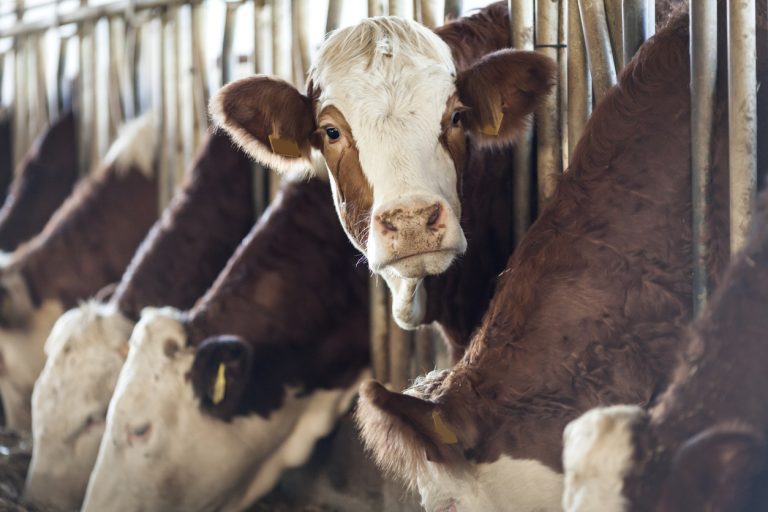Amber Moore
ambmoore@lc.edu
Meat and dairy consumption can be assumed as a personal choice. But, really, the choice becomes less personal when it holds massive implications for the state of the planet and life on it.
As environmental consciousness continues to gain momentum—particularly in younger generations—it is imperative to take into account that when we think we’re saving the planet by not using plastic straws or carpooling every now and then, we’re actually doing the bare minimum. Contributing less of our diets to meat and dairy products is one of the most effective things we could do, as it would create less demand for the products that create and enable lasting environmental damage.
Animal agriculture doesn’t just negatively affect the livelihood of the animals being bred for food; to make room for crops to feed livestock and the livestock itself, forests are cut into at the expense of plants and wildlife that inhabit them. Commercial animal agriculture is responsible for around 80 percent of deforestation globally, according to Wageningen University and Research Centre.
Along with all of the land being destroyed, we’re essentially making room for resources only to waste more resources. Worldwide, cows used in agriculture consume 45 billion gallons of water daily . The U.S. would be able to feed around 800 million people with all of the grain that is used to feed livestock.
Therefore, not only are we tearing down land for food we don’t even need, but we could also be devoting our resources to more reasonable causes (for instance, feeding some of those 800 million people). And while it’s easy for one to think that a plant-based diet would expend more land through the use of crops, it only requires one-sixth of an acre, while a diet that heavily incorporates meat would take up about 18 times more than that.
Animal agriculture’s lack of recognition for its contributions to climate change is most stupefying. Nitrous oxide, a greenhouse gas that stays inside Earth’s atmosphere for about 114 years, has 296 times the potential to influence climate change than carbon dioxide, is produced largely by livestock—65 percent, actually.
Methane, another greenhouse gas, is largely produced by animal agriculture; cows produce roughly 150 billion gallons of methane per day. That’s 54,750 billion gallons in a year. As if that wasn’t enough, 51% of all greenhouse gas emissions can be attributed to livestock and their byproducts.
And if one were to think that just consuming fish would be the answer to all of the environmental complications caused by animal agriculture, they would be greatly mistaken.
Commercial fishing is a leading contributor to plastic pollution in the ocean. Contrary to the popular belief that plastic straws and single-use bottles make up most to all of the garbage in the ocean, a large portion of plastic waste is actually discarded fishing gear.
According to a study done by The Ocean Cleanup, an organization built on advancing technologies to reduce the accumulation of plastic debris in oceans, “46 percent of plastic waste in the Great Pacific garbage patch is comprised of abandoned fishing gear”. To put this into perspective, the Great Pacific garbage patch is a mass of debris that currently spans across 1.6 million square kilometers, containing an estimate of 1.8 trillion pieces of plastic.
Its weight adds up to a whopping 87,000 tons, which is the equivalent of roughly 898 billion cars. And almost half of that is from commercial fishing alone.
The continuous increase in demand for seafood products leaves us with more plastic waste, more polluted oceans, as well as more populations of fish being expended far beyond their limits—so much that scientists foresee fishless oceans by as soon as 2048. Not using plastic straws to save fish is not enough. We should start with not eating fish to save fish.
Integrating more plant-based foods into one’s diet is one of the most effective ways to combat environmental devastation caused by animal agriculture. It’s impossible for one to expect everyone to go vegan instantaneously, although reductions in intake are something nearly everyone is capable of practicing. It’s perhaps the least we could do to help make up for generations of overusing and abusing Earth’s resources and life.




